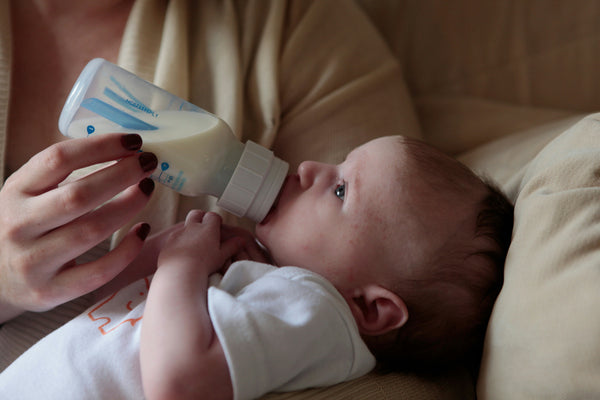5 Tips to Help with Painful Poops in Kids
share this article

Painful poops can be distressing for kids and concerning for parents. Constipation, a common cause of painful bowel movements in children, can lead to discomfort and reluctance to use the toilet.
Fortunately, there are effective strategies parents can implement to help alleviate this discomfort and promote regular bowel movements in their little ones.
Increase Fiber Intake
Fiber plays a crucial role in promoting regular bowel movements and preventing constipation. According to research published in the Journal Pediatrics, increasing dietary fiber intake can significantly improve stool frequency and consistency in kids with constipation [2].
For kiddos are picky eaters, adding a daily serving of Growing Up Prebiotics can help support softer, more regular stools. The tasteless, textureless powder helps kiddos get more fiber throughout the day in an easy way.
Learn more about how prebiotics can help support constipation symptoms like painful poops here.
Daily reads to help your little ones lead happier and healthier lives.
Join the
Happy Gut Club
Adjust Fluid Intake
Adequate hydration is essential for softening stools and easing bowel movements, especially in kids prone to constipation.
According to a study in the Journal of Pediatric Gastroenterology and Nutrition, insufficient fluid intake can contribute to constipation and increase the risk of painful poops in children [4].
Encourage kids to drink plenty of water throughout the day and offer hydrating foods like fruits and vegetables to support optimal hydration and bowel function.
Here's 15 creative ways to get your picky eater to drink more fluids.
Promote Regular Toilet Habits
Establishing regular toilet habits can help prevent constipation and reduce the likelihood of painful poops in kids.
Research published in the Journal of Pediatric Health Care suggests that encouraging kids to use the toilet at consistent times each day, such as after meals, can help regulate bowel movements and prevent withholding behaviors [5].
Create a comfortable and relaxed environment for kids to use the toilet, and praise them for their efforts to encourage positive toilet habits.
Incorporate Physical Activity
Regular physical activity can stimulate bowel motility and promote regular bowel movements in kids. According to a study in the Journal Gastroenterology Research and Practice, increasing physical activity levels can help alleviate constipation symptoms and improve overall gastrointestinal health in children.
Here's what a Pediatric Physical Therapist recommends to help your kiddo with constipation symptoms.
Encourage kids to engage in age-appropriate physical activities such as running, jumping, swimming, or playing active games to support healthy bowel function and alleviate painful poops.
Consider Stool Testing
If your kids continue to experience painful poops despite dietary and lifestyle interventions, stool testing may be warranted to identify any underlying issues such as infections or digestive disorders.
Stool tests such as Begin Health’s Kiddo Poop Test can provide valuable insights into the child's digestive health and help guide appropriate treatment strategies.
Summary
Increasing fiber and fluid intake, adding prebiotics like Growing Up Prebiotics, promoting regular toilet habits, encouraging physical activity, and considering stool testing when necessary can help support painful poops and promote regular bowel movements in kids.
















